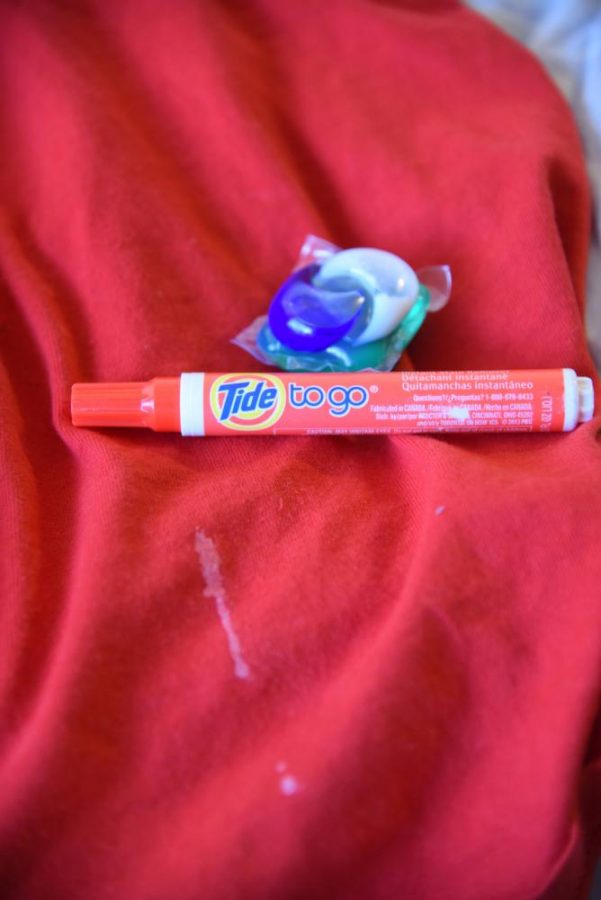Don’t Always Dump Clothes Into the Washing Machine
Tide To-go pen is the easy first step to remove stains on your clothes before you put them into the washing machine or any other kind of cleaning.
October 17, 2017
Laundry is a chore, but a necessary one. Knowing how to take care of your clothes properly can save you time, money and the headache of accidentally shrinking your favorite shirt. Keep these tips in mind the next time you do your laundry.
To begin with, washing methods vary by garment, so always check the washing instructions label inside your clothes before deciding to either dump them into the washing machine or take them to dry cleaning.
Dry cleaning is crucial for some garments — especially if they are expensive — which cannot be directly soaked into the water. Unless the label inside says otherwise, silk, velvet, 100 percent sheep wool, suits and formal dresses often are better to be dry cleaned to keep them in perfect shape.
While some clothes should avoid water, some should not be dry cleaned. Contrary to popular belief, the chemical products used in dry cleaning can actually lead to the breakdown of fiber and discoloration, according to Lindsey Boyd from the Laundress.
When clothes are hand washed, it’s better for them to be slowly submerged in water until fully being soaked with some mild detergent or a capful of dish soap for about 30 minutes. Then, gently rinse without twisting the garment, as twisting could stretch out the original shape of the piece. Thus, a rotating washing machine is probably not a good choice. After squeezing out the water carefully, a sweater will remain in better shape and condition if it is dried out on a fresh white towel. Rolling up the sweater within the towel can hasten the drying speed. This method can be applied not only to sweaters but also to other garments in need of handwashing.
Other tips for standard, regular wash clothing include turning clothes inside out to extend their youth. For jeans, put them into a dryer for only 10 minutes and hang them up by the ankles to reduce shrinking.
Be wary when wearing sweaters and knits in heavily aromatic settings, such as a restaurant, as they often contract the scent within the seams. Jingyi Du, a Steinhardt freshman, remembers going out to eat and never losing the scent.
“If you are going to eat at a hotpot place, don’t [keep] your sweater expose[d],” Du said. “It is difficult to remove the food smell from the sweater.”
To keep from carrying the scent forever, sweaters should be shielded from the lurking scents of perfumes and cigarettes. A towel dipped with white vinegar or lemon juice helps to remove the smell, especially that of cigarettes. For delicate sweaters, like those made of cashmere, wash only a couple of times in a season and use freshening sprays between washes.
Some clothes actually cannot be either dry cleaned or hand washed. Leather jackets should be cleaned by a special care agent, and the surface scrubbed with a soft cloth or brush.
In the case of an annoying food stain, usually soak the stain in cold water before adding solution, if the garment can be exposed to water. For stubborn stains, such as baked beans or barbecue sauces, work from the back of the stain with liquid detergent and then white vinegar will usually help.
With these tips, hopefully your clothes will maintain a fresh and clean quality.
Email Sherry Yan at [email protected].












































































































































